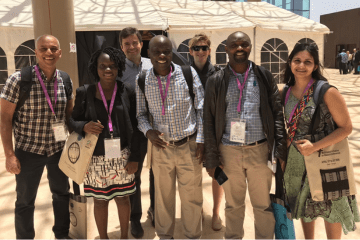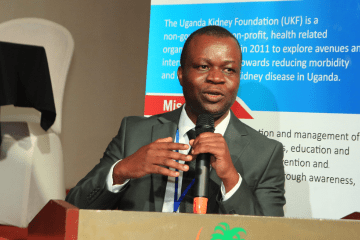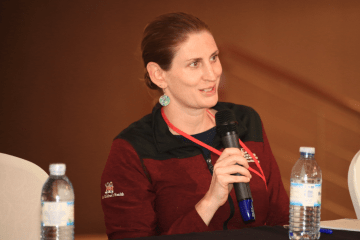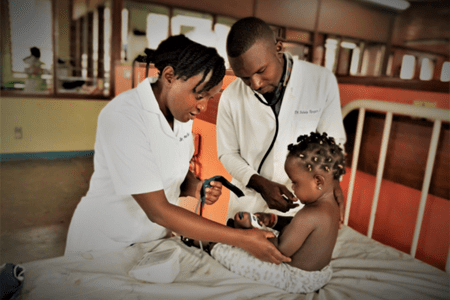“Our long-term goal is to develop new diagnostic tools so we can recognize kidney injury earlier in children in low-resource settings and initiate treatment before they progress to more severe disease that is difficult to treat,” said Conroy. “We are also looking at potential clinical trials that can support kidney recovery in children so future patients can have more options available to support their health care needs.”

Conroy’s research practice has been based in Uganda since 2011 where she studies the effects of malaria on children—specifically, acute kidney injury in children with severe malaria. Her group was the first to document acute kidney injury as a common complication in children with severe malaria. There are presently few treatment options available for children developing kidney disease—dialysis is costly and usually inaccessible, and there are no transplant programs in Uganda. Because of these circumstances, most young patients who develop kidney failure do not survive.
Conroy’s kidney research represented a major milestone in the global understanding of pediatric severe malaria and what leads to death in so many children. Malaria is a serious disease transmitted to humans bitten by a particular type of infected mosquito and it’s among the leading cause of global death in children. According to the World Health Organization, there were 247 million cases of malaria in 2021. Because individuals with weak immune systems have the highest risk of contracting malaria, children younger than five accounted for 80% of malaria-related deaths in Africa in 2021.
Conroy’s research also showed that acute kidney injury is a risk factor for long-term brain injury and chronic kidney disease in malaria survivors. These breakthroughs have not only gained notoriety and recognition within the malaria community, but also with the greater nephrology community around the world.

Unlike most of her IU colleagues who conduct their research in the Hoosier state, Conroy spends the majority of her time in Kampala, Uganda as the Director of the IU-affiliated CHILD lab, a translational biomedical research laboratory through her efforts with the Ryan White Center for Pediatric Infectious Disease and Global Health Uganda.

